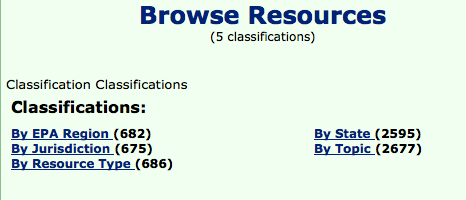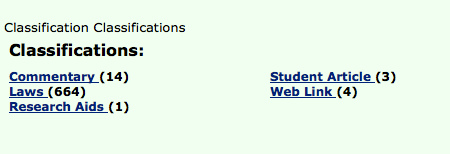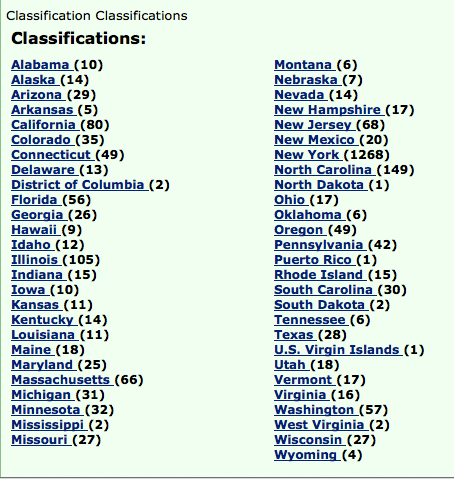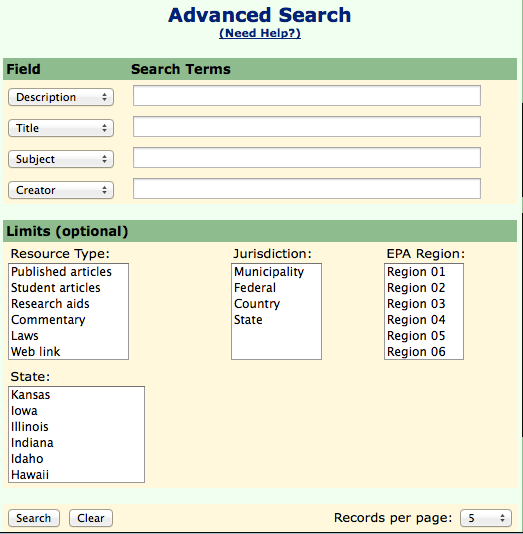POST WRITTEN BY: Steven E. Gavin (’14), Pace Law School
It is said that all land use law is inherently local. As such, finding resources applicable to a particular state or municipality can prove difficult even for the most experienced practitioner or scholar. Fortunately, the Land Use Law Center maintains a database called Gaining Ground, which provides users with a comprehensive collection of all things land use.
 The “Browse Resources” function offers an intuitive and straight forward platform by which to locate a massive amount of land use resources, from the esoteric to the fundamental. The user can browse not only by jurisdiction, state, and topic, but also by resource type and EPA region. This function proves particularly helpful to practitioners working in a particular state or area of land use law.
The “Browse Resources” function offers an intuitive and straight forward platform by which to locate a massive amount of land use resources, from the esoteric to the fundamental. The user can browse not only by jurisdiction, state, and topic, but also by resource type and EPA region. This function proves particularly helpful to practitioners working in a particular state or area of land use law.

The “Resource Type” allows the user to narrow their search by particular type of content. The database contains many documents on laws that cannot be found anywhere else. Additionally, the database is unique in the availability of commentary and student articles produced under the supervision of the Land Use Center staff.
The “By State” function contains documents from all fifty states plus the District of Columbia, Puerto Rico, and the U.S. Virgin Islands. Although there is an understandable northeastern emphasis, one can find unique research throughout. As the Land Use Center expands to different regions of the nation, particularly the southwest, the database will continue to grow.
Finally, the “Advanced Search” function allows the user to combine all of the previous functions for a targeted search. Additionally, the user is able to search by “Publisher,” “URL,” “Municipality,” “Email address,” as well as many others. This function allows a user interested in a highly defined subject to go directly to the document, circumventing the need to use the “Browse” function.
The Land Use Law Center also suggest that the user utilize the Database of New York State Municipal Laws on Green Buildings, Alternative Energy, and Energy Efficiency, which is maintained by this partner, Columbia Law School’s Center for Climate Change Law.


Very helpful resource on land use law. Thanks for highlighting it.